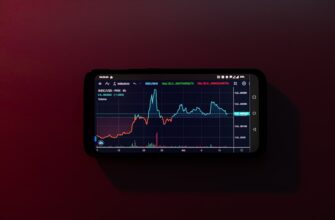- Finding the Best Crypto Exchanges in 2023
- Key Criteria for Choosing a Crypto Exchange
- Top 5 Crypto Exchanges for 2023
- 1. Coinbase (Best for Beginners)
- 2. Binance (Best for Altcoin Traders)
- 3. Kraken (Best Security)
- 4. Gemini (Best Regulatory Compliance)
- 5. Crypto.com (Best Mobile Experience)
- Getting Started with Crypto Exchanges
- FAQ: Crypto Exchange Essentials
- What is the safest cryptocurrency exchange?
- Which exchange has the lowest fees?
- Can US citizens use Binance?
- Are crypto exchanges FDIC-insured?
- How do I withdraw crypto to a private wallet?
Finding the Best Crypto Exchanges in 2023
With over 500 cryptocurrency exchanges worldwide, choosing the right platform can be overwhelming. The best crypto exchanges balance security, low fees, diverse asset offerings, and user-friendly interfaces. This guide compares top contenders based on critical factors like regulatory compliance, trading tools, and supported cryptocurrencies to help you navigate the rapidly evolving market. Whether you’re a beginner or seasoned trader, selecting the optimal exchange is crucial for safeguarding assets and maximizing returns.
Key Criteria for Choosing a Crypto Exchange
Before comparing platforms, understand these essential evaluation metrics:
- Security Protocols: Look for exchanges with cold storage, two-factor authentication (2FA), and insurance funds
- Fee Structures: Compare trading fees, withdrawal costs, and deposit methods
- Supported Assets: Ensure availability of desired cryptocurrencies (Bitcoin, Ethereum, altcoins)
- Regulatory Compliance: Prioritize platforms licensed in major jurisdictions like the US or EU
- User Experience: Intuitive interfaces and responsive customer support
Top 5 Crypto Exchanges for 2023
1. Coinbase (Best for Beginners)
Regulated in the US with over 100M users. Offers 200+ cryptocurrencies, educational rewards, and insured custodial wallets. Charges 0.6% spot trading fee but higher withdrawal costs. Ideal for first-time buyers.
2. Binance (Best for Altcoin Traders)
Global giant supporting 350+ coins with industry-low 0.1% spot fees. Features staking, futures, and NFT marketplace. Limited US availability via Binance.US with reduced assets.
3. Kraken (Best Security)
Audited proof-of-reserves and 95% cold storage. Offers 200+ coins, margin trading, and futures. Competitive 0.16%-0.26% fees. Advanced tools suit experienced traders.
4. Gemini (Best Regulatory Compliance)
NYDFS-regulated with SOC 2 certification. 100+ cryptocurrencies and FDIC-insured USD balances. Higher fees (0.4%-1.49%) offset by robust security and Earn program.
5. Crypto.com (Best Mobile Experience)
Feature-rich app with 250+ coins, crypto Visa cards, and 10% staking rewards. Spread fees up to 0.4% plus withdrawal charges. Strong DeFi integration.
Getting Started with Crypto Exchanges
- Verify identity with KYC documents
- Enable two-factor authentication
- Start with small test transactions
- Use hardware wallets for large holdings
- Monitor tax implications of trades
FAQ: Crypto Exchange Essentials
What is the safest cryptocurrency exchange?
Kraken and Gemini lead in security with regular audits, cold storage, and regulatory compliance. Always enable 2FA regardless of platform choice.
Which exchange has the lowest fees?
Binance offers the most competitive fees (0.1% spot trades), followed by Kraken. Beware of hidden withdrawal or network fees that impact overall costs.
Can US citizens use Binance?
US residents must use Binance.US, which operates independently with fewer supported assets due to regulatory restrictions. Main Binance platform isn’t available in the US.
Are crypto exchanges FDIC-insured?
Only USD fiat balances on regulated exchanges like Coinbase and Gemini receive FDIC insurance (up to $250k). Cryptocurrency assets themselves aren’t FDIC-insured.
How do I withdraw crypto to a private wallet?
Navigate to withdrawal section, enter your external wallet address, verify via email/2FA, and pay network fees. Always test with small amounts first.
Choosing among the best crypto exchanges depends on your location, experience level, and trading needs. Prioritize security features and regulatory compliance, especially for significant investments. Diversify across multiple platforms to mitigate risk and always conduct independent research before trading.








